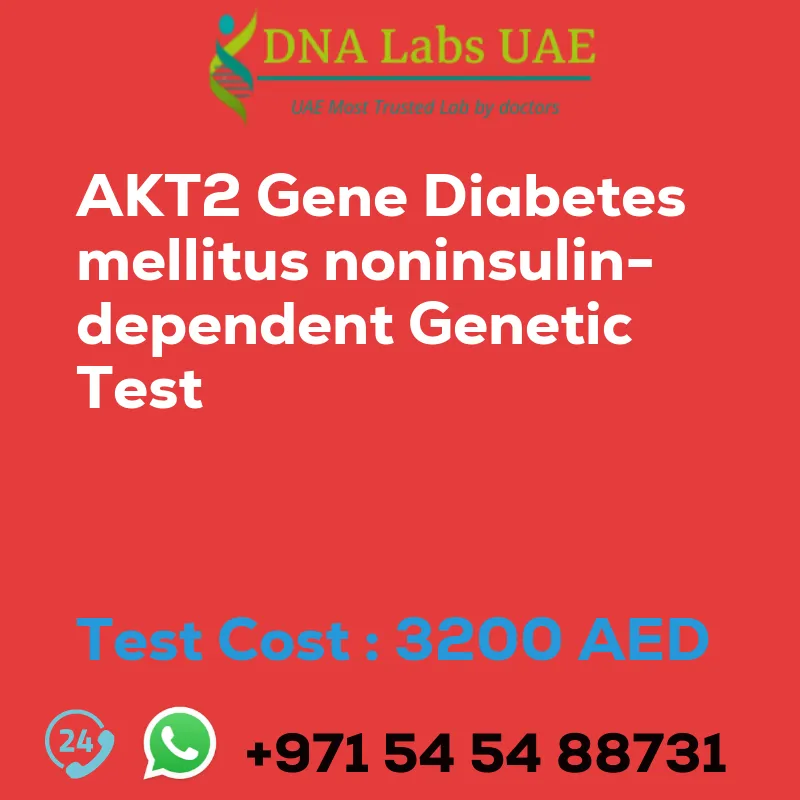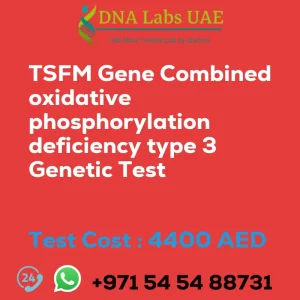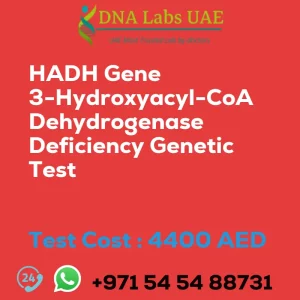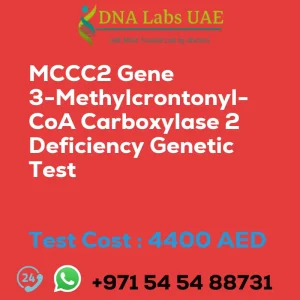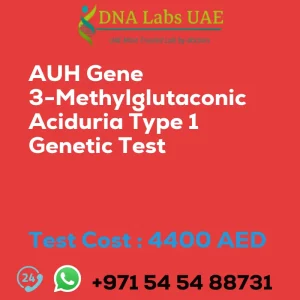AKT2 Gene Diabetes mellitus noninsulin-dependent Genetic Test
Test Details
The AKT2 gene is associated with noninsulin-dependent diabetes mellitus (NIDDM), also known as type 2 diabetes. NIDDM is a chronic condition characterized by high blood sugar levels due to the body’s inability to properly use insulin or produce enough insulin.
NGS (Next-Generation Sequencing) genetic testing is a method used to analyze an individual’s DNA to identify genetic variations or mutations that may be associated with certain diseases or conditions. In the case of NIDDM, NGS genetic testing can be used to analyze the AKT2 gene to identify any variations or mutations that may be contributing to the development of type 2 diabetes.
By identifying specific genetic variations in the AKT2 gene, NGS genetic testing can help healthcare professionals better understand an individual’s risk for developing NIDDM and tailor treatment plans accordingly. This type of testing can also be useful in identifying individuals who may be at a higher risk of developing diabetes, allowing for early intervention and preventive measures.
It is important to note that NGS genetic testing is just one tool in the diagnosis and management of type 2 diabetes. Other factors such as lifestyle, diet, and environmental factors also play a significant role in the development and progression of the disease. Therefore, genetic testing should be used in conjunction with other diagnostic methods and clinical assessments to provide a comprehensive understanding of an individual’s risk for NIDDM.
Test Name: AKT2 Gene Diabetes mellitus noninsulin-dependent Genetic Test
Components:
- NGS Technology
Price: 3200.0 AED
Sample Condition: Blood
Report Delivery: 3 to 4 Weeks
Test Type: Metabolic Disorders
Doctor: General Physician
Test Department: Genetics
Pre Test Information:
Clinical History of Patient who is going for AKT2 Gene Diabetes mellitus, noninsulin-dependent NGS Genetic DNA Test A Genetic Counselling session to draw a pedigree chart of family members affected with Diabetes mellitus, noninsulin-dependent.
| Test Name | AKT2 Gene Diabetes mellitus noninsulin-dependent Genetic Test |
|---|---|
| Components | |
| Price | 3200.0 AED |
| Sample Condition | Blood |
| Report Delivery | 3 to 4 Weeks |
| Method | NGS Technology |
| Test type | Metabolic Disorders |
| Doctor | General Physician |
| Test Department: | Genetics |
| Pre Test Information | Clinical History of Patient who is going for AKT2 Gene Diabetes mellitus, noninsulin-dependent NGS Genetic DNA Test A Genetic Counselling session to draw a pedigree chart of family members affected with Diabetes mellitus, noninsulin-dependent |
| Test Details |
The AKT2 gene is associated with noninsulin-dependent diabetes mellitus (NIDDM), also known as type 2 diabetes. NIDDM is a chronic condition characterized by high blood sugar levels due to the body’s inability to properly use insulin or produce enough insulin. NGS (Next-Generation Sequencing) genetic testing is a method used to analyze an individual’s DNA to identify genetic variations or mutations that may be associated with certain diseases or conditions. In the case of NIDDM, NGS genetic testing can be used to analyze the AKT2 gene to identify any variations or mutations that may be contributing to the development of type 2 diabetes. By identifying specific genetic variations in the AKT2 gene, NGS genetic testing can help healthcare professionals better understand an individual’s risk for developing NIDDM and tailor treatment plans accordingly. This type of testing can also be useful in identifying individuals who may be at a higher risk of developing diabetes, allowing for early intervention and preventive measures. It is important to note that NGS genetic testing is just one tool in the diagnosis and management of type 2 diabetes. Other factors such as lifestyle, diet, and environmental factors also play a significant role in the development and progression of the disease. Therefore, genetic testing should be used in conjunction with other diagnostic methods and clinical assessments to provide a comprehensive understanding of an individual’s risk for NIDDM. |

